
Clinical Trial of NanoStilbene™️ for Immune Derepression in Advanced Cancer
Pterostilbene, being a methyl ether of resveratrol, is known to possess anti-inflammatory and anticancer activity in various model systems. It is known that in advanced cancer, excess inflammatory signaling may be associated with
Given the importance of NK cells in the activity of various Immunotherapeutics, we sought to determine whether administration of a nanoparticle formulation of pterostilbene may reverse cancer associated suppression of NK activity. An initial study in
Subsequent to this, the selected NanoStilbene dose was administered to twelve patients with advanced solid cancers for 3 weeks. Daily treatment with 300mg of NanoStilbene caused
12 patients with advanced cancer
- ECOG >2
- 300mg NanoStilbene Oral daily (300mg PTER)
- Assessments pre and 1, 2, and 3 weeks after treatment
Inflammatory Markers Decreased
- TNF, IL-6, CRP
Immune Markers Increased
- IFN gamma from stimulated PBMC
- NK Cytolysis activity
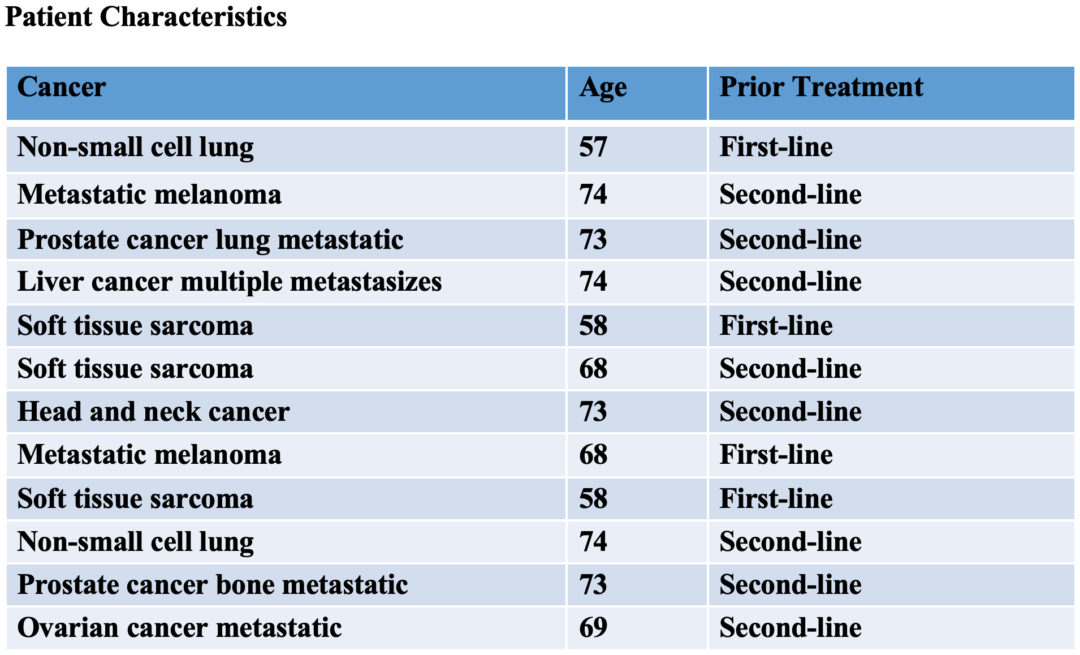
TNF-a what is it?
Tumour Necrosis Factor alpha (TNF alpha), is an inflammatory cytokine produced by macrophages/monocytes during acute inflammation and is responsible for a diverse range of signaling events within cells, leading to necrosis or apoptosis. The protein is also important for resistance to infection and cancers.
TNF inhibitors are drugs that help stop inflammation. They’re used to treat diseases like rheumatoid arthritis (RA), juvenile arthritis, psoriatic arthritis, plaque psoriasis, ankylosing spondylitis, ulcerative colitis (UC), and Crohn’s disease. They’re also called TNF blockers, biologic therapies, or anti-TNF drugs.
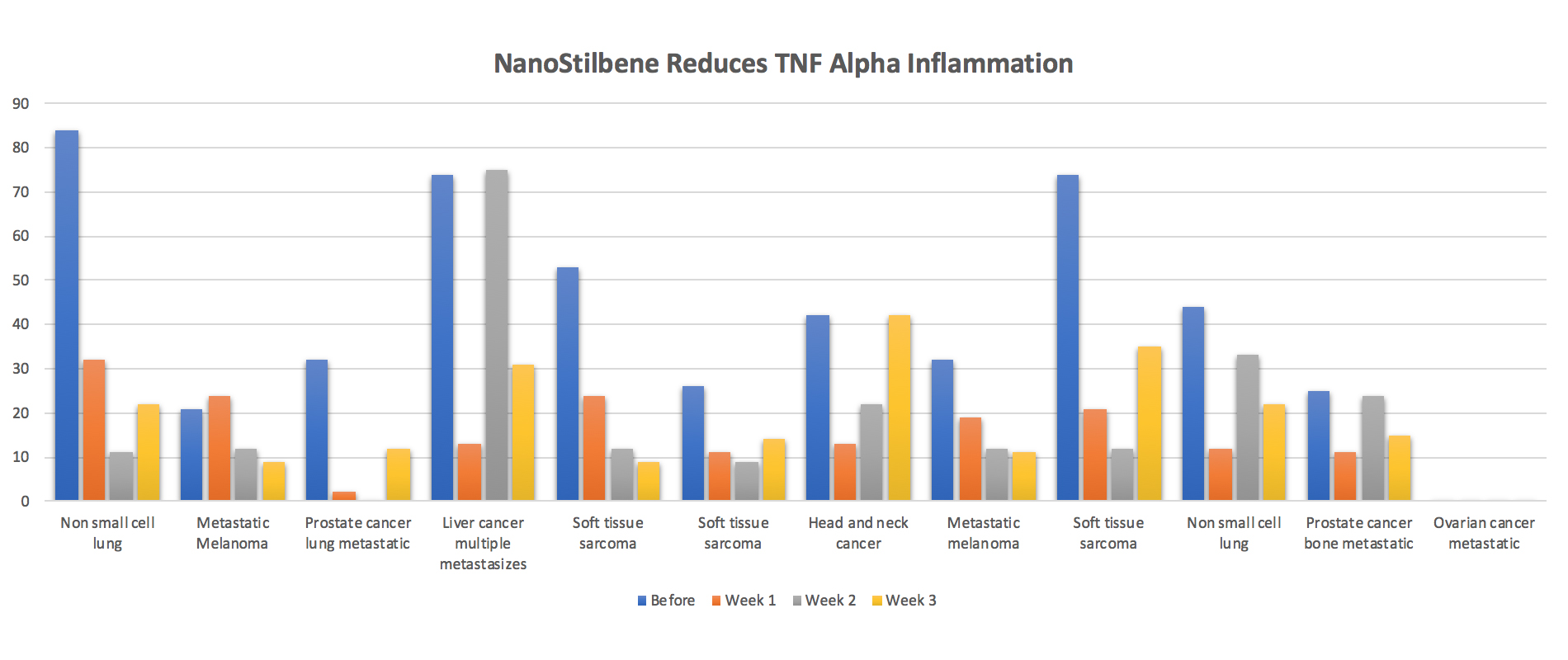
IL-6 what is it?
IL-6 or Interleukin 6, is an interleukin that acts as both a pro-inflammatory cytokine and an anti-inflammatory myokine. In humans, it is encoded by the IL6 gene. In addition, osteoblasts secrete IL-6 to stimulate osteoclast formation.
Interleukin inhibitors are immunosuppressive agents which inhibit the action of interleukins. Interleukins are a group of cytokines which are synthesized by lymphocytes, monocytes, macrophages, and certain other cells. They function especially in the regulation of the immune system.
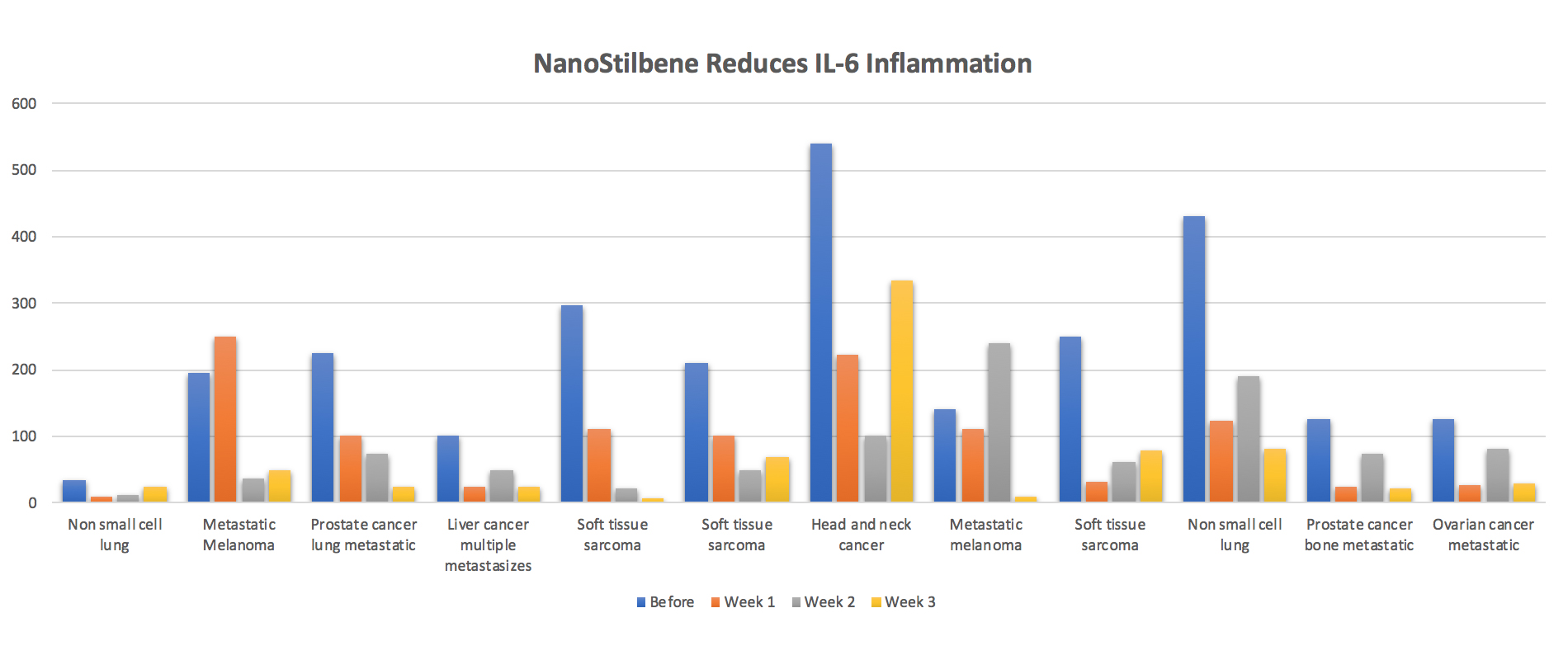
CRP what is it?
CRP or C-reactive Protein is an annular, pentameric protein found in blood plasma, whose circulating concentrations rise in response to inflammation. It is an acute-phase protein of hepatic origin that increases following interleukin-6 secretion by macrophages and T cells.
Lowering of CRP may be seen with the use of statin drugs even without significant improvement of the cholesterol profile. Reduction of CRP level has also been noted in individuals with known cardiovascular disease who begin aspirin therapy.
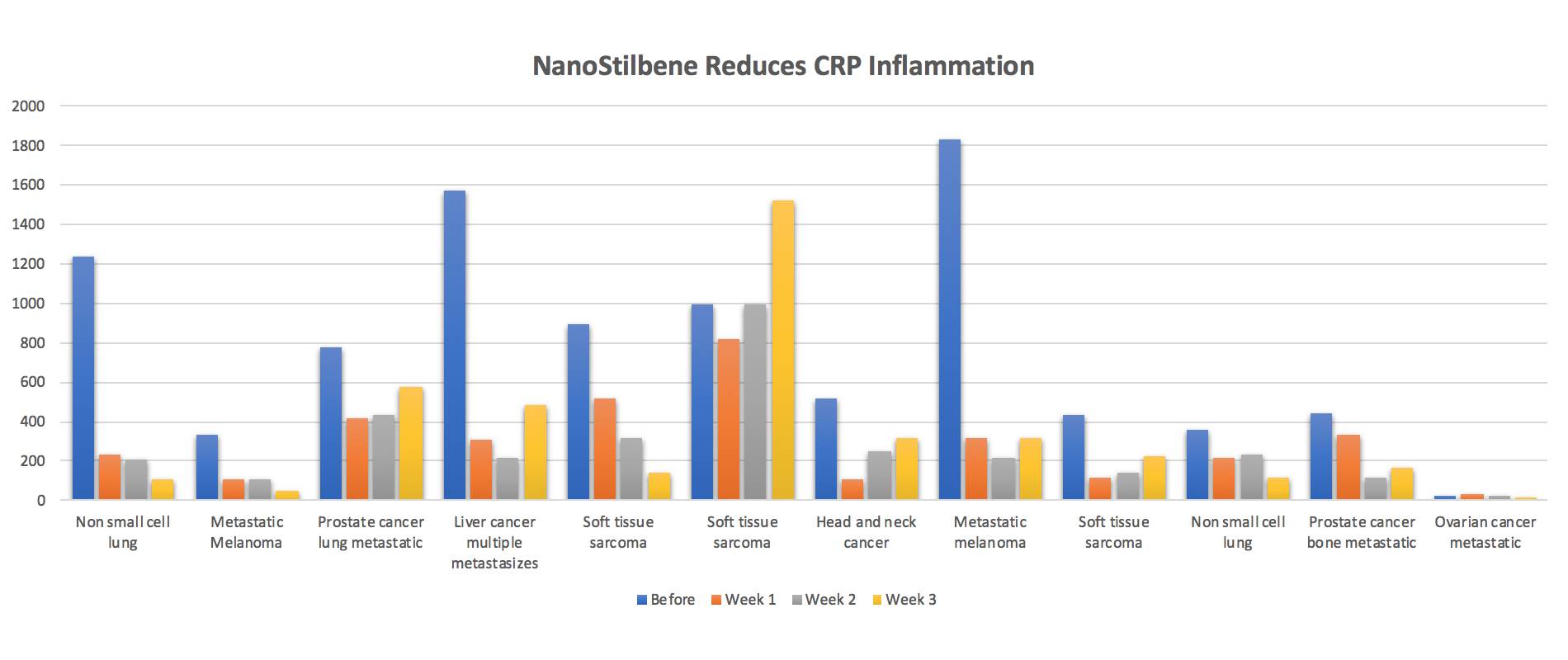
IFN-gamma what is it?
IFN-gamma(IFNγ), or type II interferon, is a cytokine that is critical for innate and adaptive immunity against viral, some bacterial and protozoal infections. IFNγ is an important activator of macrophages and inducer of Class II major histocompatibility complex (MHC) molecule expression.
IFN–gamma has long been recognized as a signature proinflammatory cytokine that plays a central role in inflammation and autoimmune disease. There is now emerging evidence indicating that IFN–gamma possesses unexpected properties as a master regulator of immune responses and inflammation.
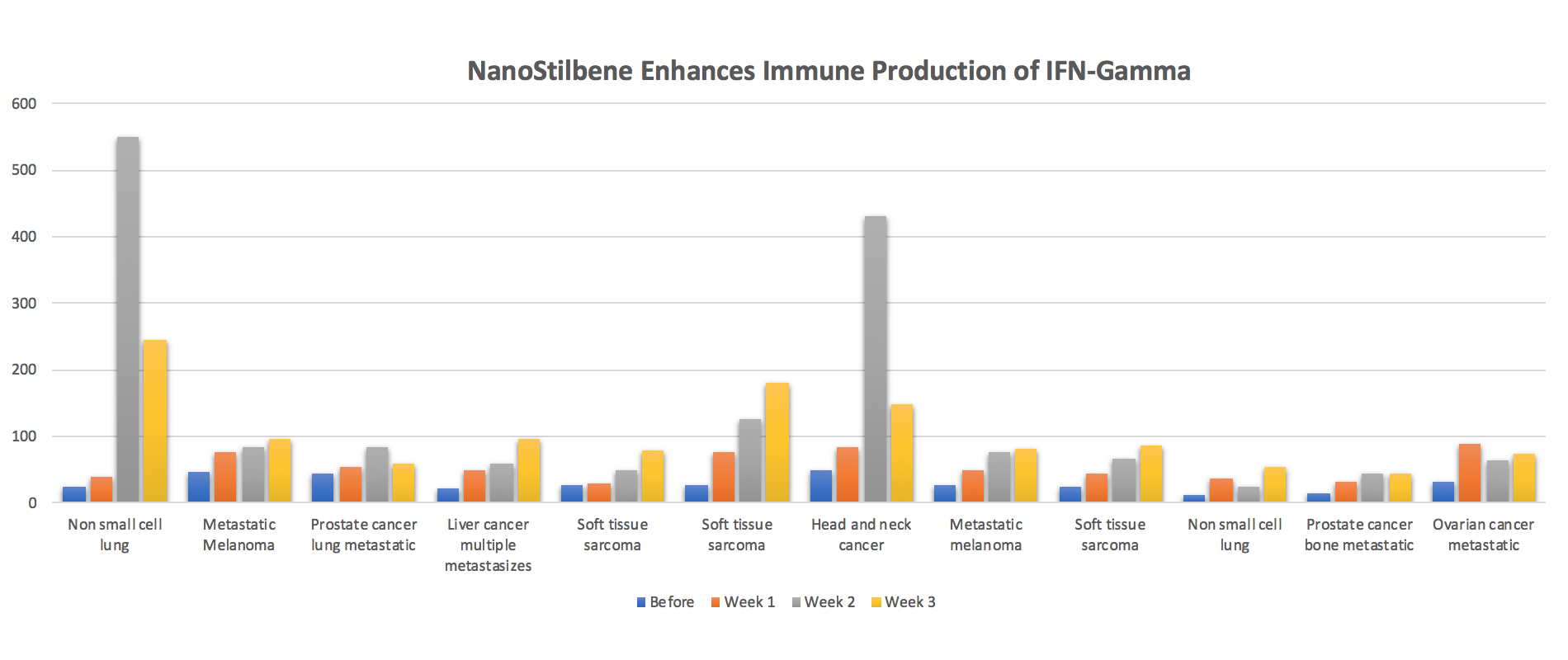
NK cell what is it?
Natural killer cells (also known as NK cells, K cells, and killer cells) are a type of lymphocyte (a white blood cell) and a component of the innate immune system. NK cells play a major role in the host-rejection of both tumors and virally infected cells.
NK cells are activated in response to interferons or macrophage-derived cytokines. They serve to contain viral infections while the adaptive immune response generates antigen-specific cytotoxic T cells that can clear the infection. NK cells work to control viral infections by secreting IFNγ and TNFα.
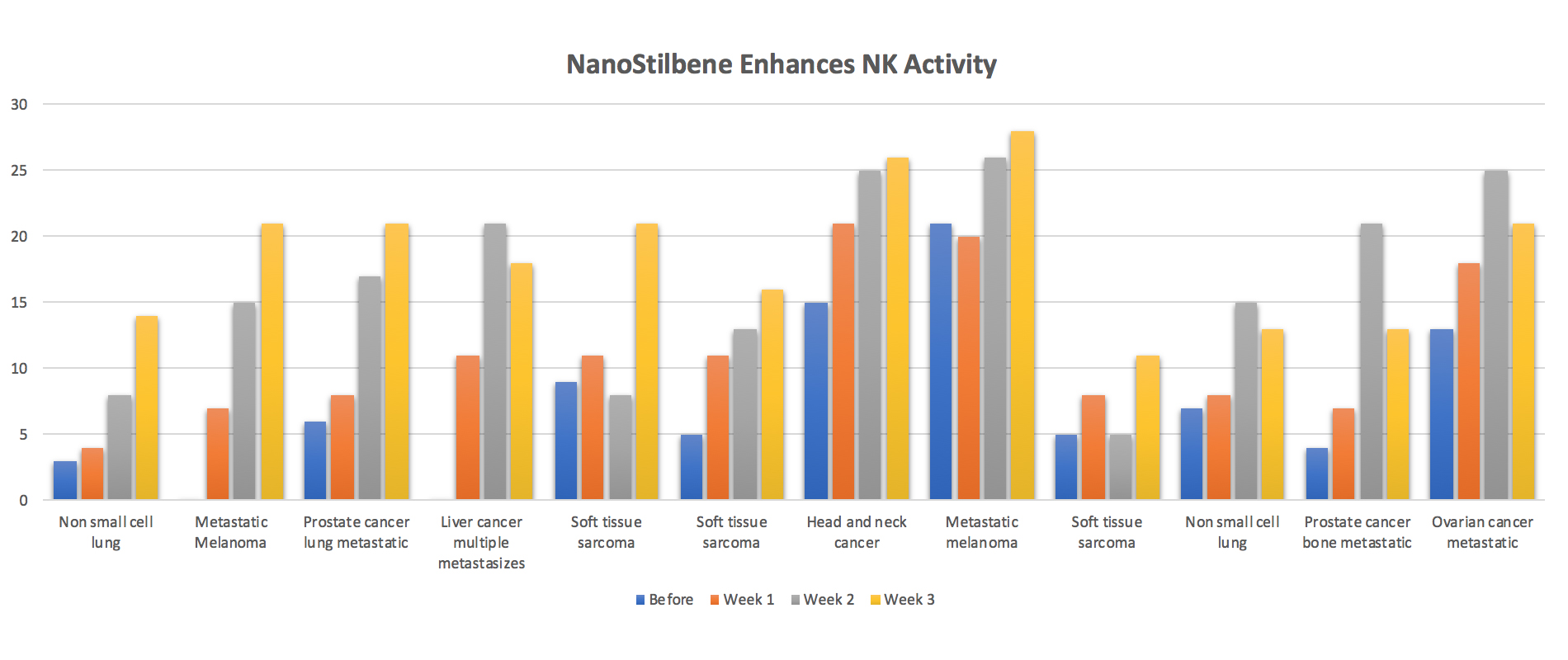
Additionally, NK cytotoxicity was augmented. These results suggest that NanoStilbene may be a useful adjuvant to immunotherapy of cancer rescuing T cell and NK cell activities.
Augmentation of NK cell function may stimulate efficacy of approved therapies that depend on an active NK compartment such as Herceptin, Rituximab, and Cetuximab.
*The data provided here is partial and does not contain all materials submitted for publication and is preliminary until peer review is complete. These statements have not been evaluated by the Food and Drug Administration. These products are not intended to diagnose, treat, cure, or prevent any disease.
